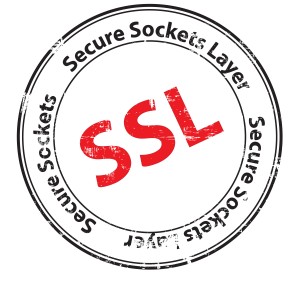How SSL Protects Sensitive Data
 The practice of sending financial and other sensitive information over the internet is here to stay. However, cyberspace is home to hackers and scammers who would love to get their hands on your personal information. The only way to prevent that from happening is to ensure that the sites you use have SSL protection. But how does SSL protect sensitive data and ensure the security of online business transactions?
The practice of sending financial and other sensitive information over the internet is here to stay. However, cyberspace is home to hackers and scammers who would love to get their hands on your personal information. The only way to prevent that from happening is to ensure that the sites you use have SSL protection. But how does SSL protect sensitive data and ensure the security of online business transactions?
SSL Protection
SSL or Secure Sockets Layer is technology that allows for a safe link between your website, and a visitor’s web browser. The information transmitted over this channel is encrypted or coded, and is therefore safe and secure. The security process involves obtaining an SSL Certificate, which then facilitates data encryption.
- SSL Certificate: This is a digital certificate that authenticates and verifies the website, assuring visitors that data protection is in place. Proof of a website’s security usually takes the form of a padlock symbol in the web browser. The SSL certificate also adjusts the web address from ‘http://’ to ‘https://’ ( the ‘s’ means its secure). An SSL certificate is issued by a Certified Authority (CA), and is a guarantee to visitors of the security of your website.
- Data Encryption: This involves the use of keys to lock and unlock data. The information sent cannot be opened without the requisite key to decrypt it. The information is coded using a public key and is transmitted in this format, thereby avoiding any outside intrusion. When it gets to the destination server a private key is used to restore it to the original format, so that it can be read.
Whether you do business online or have your own e-commerce website, data protection is vital. SSL can protect sensitive data, and avoid the dangers posed by hackers and scammers.
In today’s business, website security is a necessity. To look at how you can protect and enhance your website, contact MyITHub on 1300 769 640 Today!


























Leave a Reply
You must be logged in to post a comment.